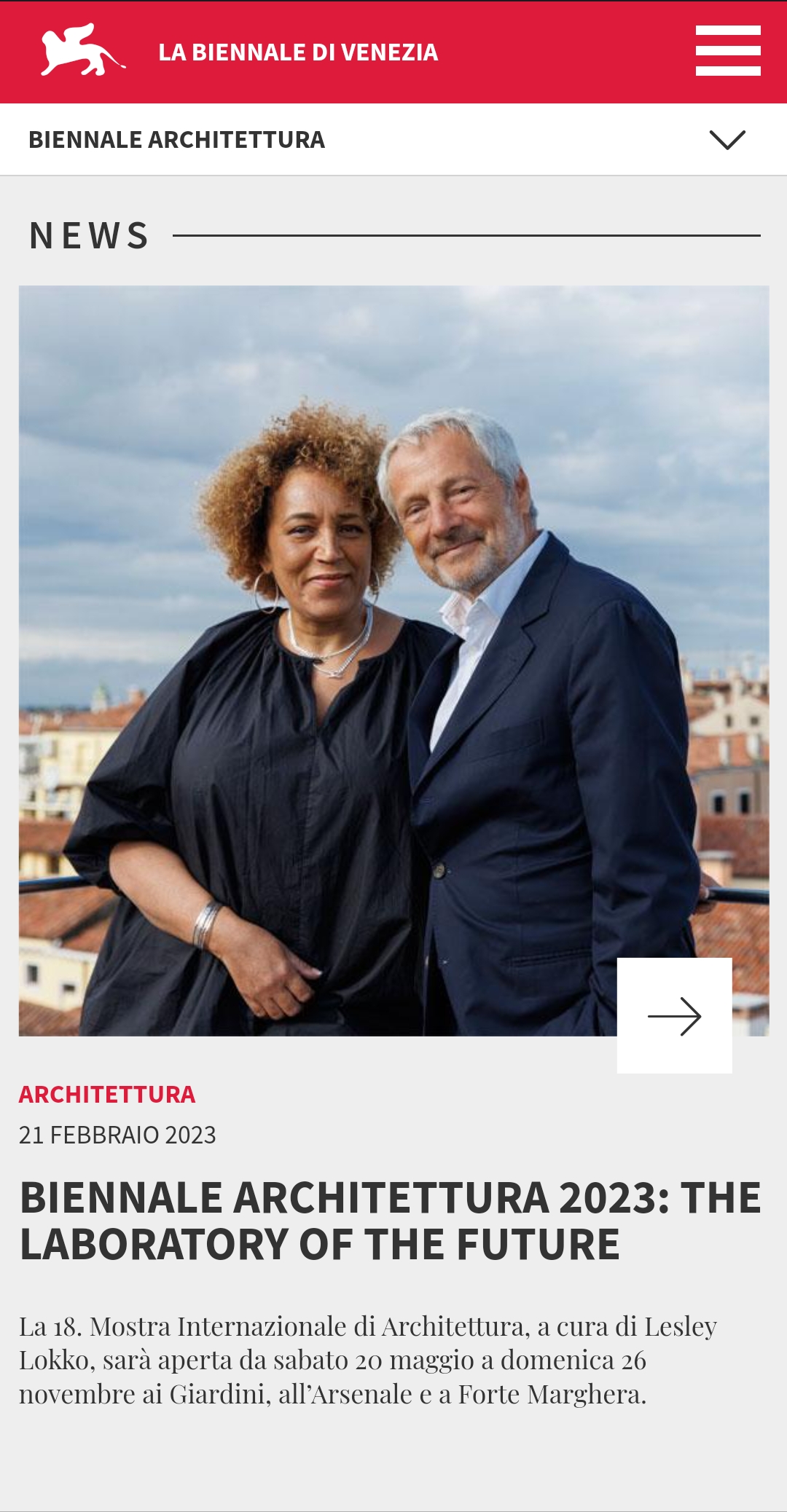Three days ago, the Venice Architecture Biennale was officially presented with a press conference where the curator, Lesley Lokko, an architect and writer, explained the main ideas behind "The laboratory of the future," 18th edition of the exhibition.

89 architecture studios, over half of which are from Africa and the African diaspora, which Lesley Lokko defines as practitioner, a term that emphasizes how architects are seen not only as designers but more broadly as individuals who do and act in a general sense, will highlight the practices and approaches of young people, since the average age of the invitees is 43, called to reflect on the complexity of the present to prepare for the near future. Starting from the stringent current conditions - an ongoing conflict that risks spreading on a global scale, climate change, and growing economic and social inequalities - the exhibition arises around a continuous discussion table that, in the nine months prior, has further highlighted how ongoing changes affect not only the territories directly influenced by these changes but much larger areas, including the communities that live there, because the effects and consequences are chain reactions and are transversal, affecting people's possibilities and ways of life and the environment, regardless of how far or close they are. The response to all of this is not univocal, but multiple.
The curator explained how the preparation work for the Biennale exhibition was conducted with the aim of giving a different narrative of the facts, considering new possible behaviors, reformulating cultural paradigms still linked to a hierarchical and sectorial vision of the architecture discipline. Challenging this monofocal perspective on which the discipline of architecture in Western countries was based, and the related history of architecture, also means overcoming a moralistic and superficial taste for the exotic, with which a consolidated hierarchy of power was masked through the abuse of empty labels, useful for self-promotion rather than for a sincere and effective recognition that within the discipline of architecture there are different visions, different ways of acting that do not need our recognition to establish their validity.
Does decolonization hide a crisis of architecture? In other words, can the supremacy of Western paradigms in universities be considered a symptom or a sign of the need to think differently about designing? Is there a failure of architecture in the West? The crisis of the discipline reflects a historical change that will probably be epochal. Perhaps this can be a useful time to reflect on how we have designed so far, on the criteria, purposes, and objectives, on who will use the spaces designed. Architecture does not exist in and of itself, just as art does not exist in and of itself, but as an expression of a specific culture, it originates from the community at a specific time and place.
Repositioning architecture within a social system means placing the architect in society, recognizing them as its result and expression, not keeping them out as a demiurge who acts as needed. In this sense, the profession of architect concerns not only design but also the understanding of a complexity that is that of living on earth, where complexity is given by the relationships that the individual establishes with others and with the environment. This results in the figure of a critical architect in contemporaneity.
For these reasons, "The laboratory of the future" could be the possibility to share this crisis and generate intelligent questions for today's future.
Title: The Laboratory of the Future
Curatorship: Lesley Lokko
When: May 20th-November 14th 2023
Where: Giardini, Arsenale, Forte Marghera
24 Fev. 2023
